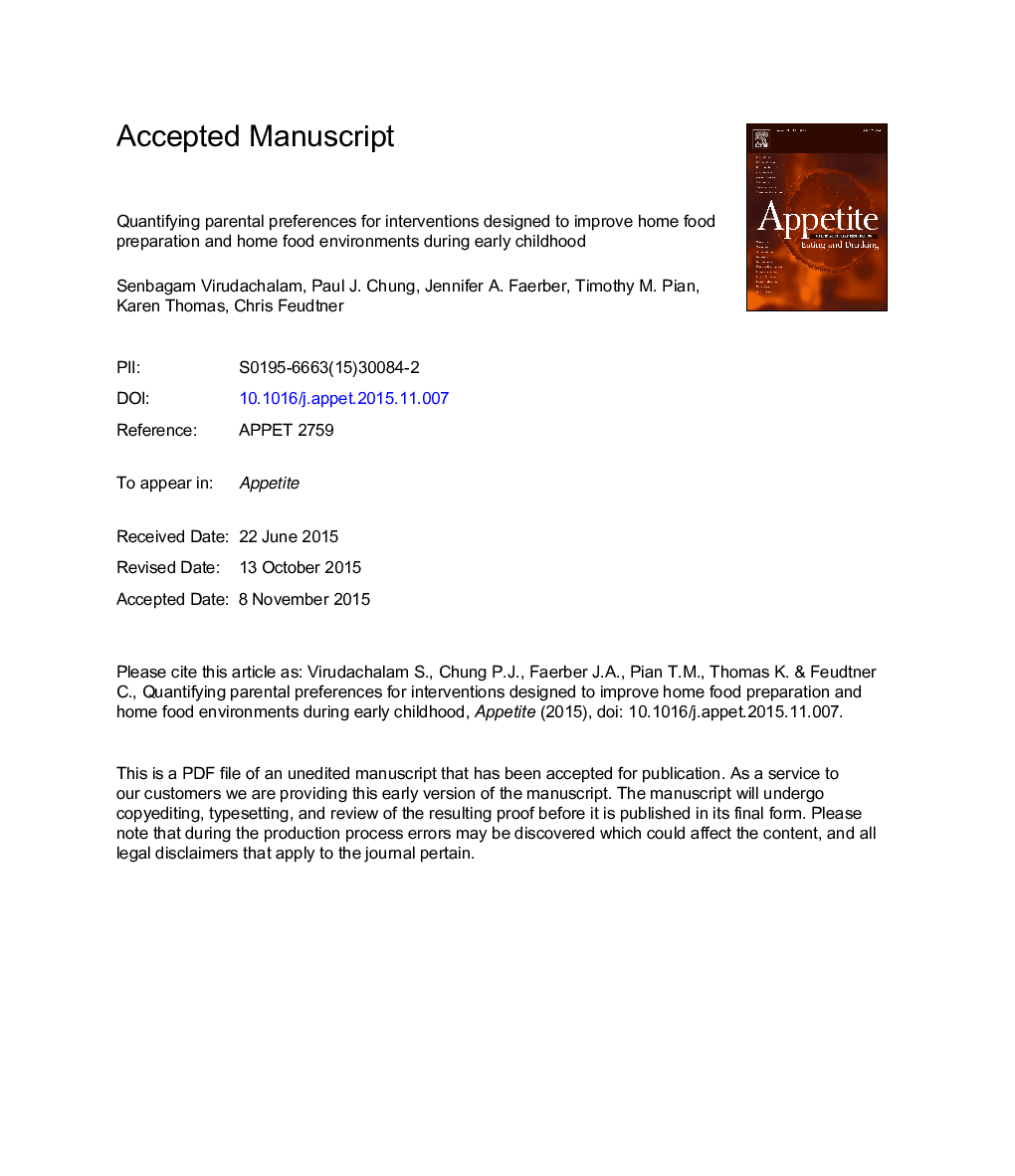| کد مقاله | کد نشریه | سال انتشار | مقاله انگلیسی | نسخه تمام متن |
|---|---|---|---|---|
| 7307856 | 1475382 | 2016 | 35 صفحه PDF | دانلود رایگان |
عنوان انگلیسی مقاله ISI
Quantifying parental preferences for interventions designed to improve home food preparation and home food environments during early childhood
ترجمه فارسی عنوان
مقادیر اولویت های والدین برای مداخلات طراحی شده برای بهبود آمادگی غذا در خانه و محیط غذای خانگی در اوایل کودکی
دانلود مقاله + سفارش ترجمه
دانلود مقاله ISI انگلیسی
رایگان برای ایرانیان
کلمات کلیدی
آشپزی، تهیه غذای خانگی، محیط زیست خانه اوایل کودکی، تغذیه، چاقی،
موضوعات مرتبط
علوم زیستی و بیوفناوری
علوم کشاورزی و بیولوژیک
دانش تغذیه
چکیده انگلیسی
Though preparing healthy food at home is a critical health promotion habit, few interventions have aimed to improve parental cooking skills and behaviors. We sought to understand parents' preferences and priorities regarding interventions to improve home food preparation practices and home food environments during early childhood. We administered a discrete choice experiment using maximum difference scaling. Eighty English-speaking parents of healthy 1-4 year-old children rated the relative importance of potential attributes of interventions to improve home food preparation practices and home food environments. We performed latent class analysis to identify subgroups of parents with similar preferences and tested for differences between the subgroups. Participants were mostly white or black 21-45 year-old women whose prevalence of overweight/obesity mirrored the general population. Latent class analysis revealed three distinct groups of parental preferences for intervention content: a healthy cooking group, focused on nutrition and cooking healthier food; a child persuasion group, focused on convincing toddlers to eat home-cooked food; and a creative cooking group, focused on cooking without recipes, meal planning, and time-saving strategies. Younger, lower income, 1-parent households comprised the healthy cooking group, while older, higher income, 2-parent households comprised the creative cooking group (p < 0.05). The child persuasion group was more varied with regard to age, income, and household structure but cooked dinner regularly, unlike the other two groups (p < 0.05). Discrete choice experiments using maximum difference scaling can be employed to design and tailor interventions to change health behaviors. Segmenting a diverse target population by needs and preferences enables the tailoring and optimization of future interventions to improve parental home food preparation practices. Such interventions are important for creating healthier home food environments and preventing obesity starting from early childhood.
ناشر
Database: Elsevier - ScienceDirect (ساینس دایرکت)
Journal: Appetite - Volume 98, 1 March 2016, Pages 115-124
Journal: Appetite - Volume 98, 1 March 2016, Pages 115-124
نویسندگان
Senbagam Virudachalam, Paul J. Chung, Jennifer A. Faerber, Timothy M. Pian, Karen Thomas, Chris Feudtner,
